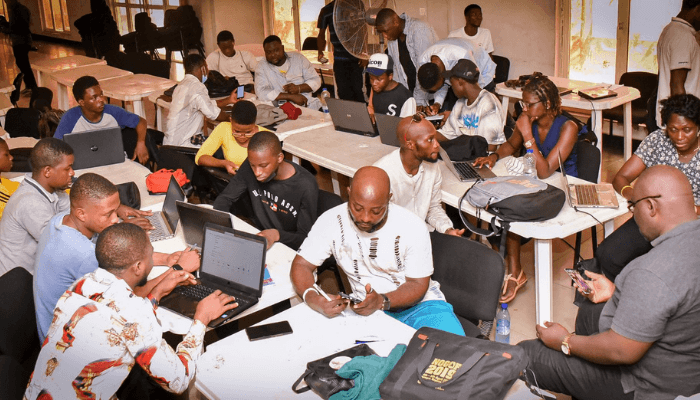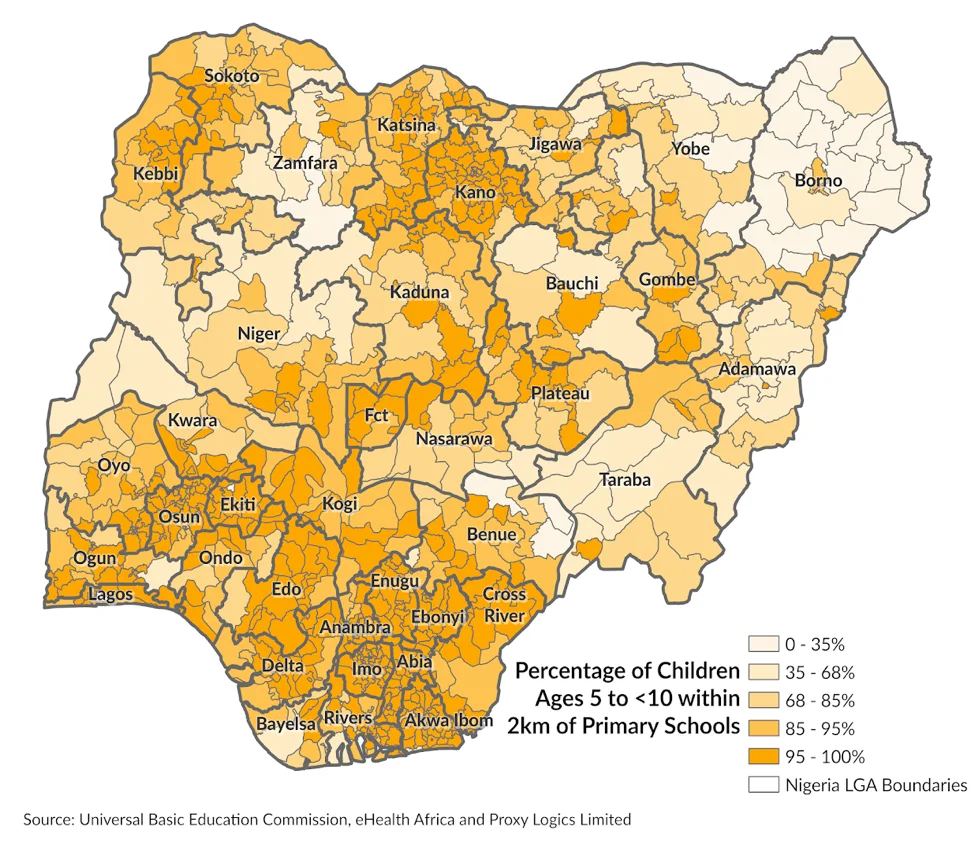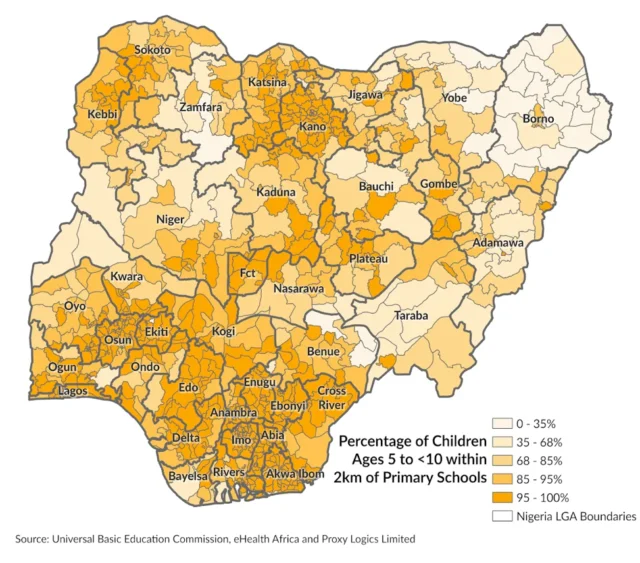Nigeria is witnessing a silent crisis in its educational landscape: numerous small towns, teeming with students keen to learn, yet utterly lacking in digital and technological resources. These “tech education deserts” are places where ambition and enrolment are high, but access to electricity, computers, internet connectivity, or ICT labs is virtually non-existent. What follows is an examination of how this situation arises, what its consequences are, and what might finally change the narrative.
Table of Contents

Where the Deserts Are: Disparities in Infrastructure and Access
In many rural and semi-urban parts of the country, schools are still operating under conditions far removed from what most city dwellers consider basic. The challenges are multiple:
- Unreliable or no electricity: Without a dependable power supply, even the few devices that might exist are often unusable. Frequent blackouts render them moot.
- Lack of ICT teaching tools: Many schools have no computer labs, no projectors, no internet routers—sometimes not even a single working laptop.
- Poor or non-existent internet: Where there is connectivity, it tends to be slow, expensive, or too intermittent to support meaningful teaching or learning.
- Few trained teachers: Even when technology is available, teachers capable of integrating digital skills into their lessons are rare.
The result: a large number of students—often in towns far from major urban centres—who attend school but do not benefit from digital education. They are educated using chalkboards and textbooks, largely cut off from online learning, virtual classrooms, or digital assignments.
Human Stories: The Cost of Being Left Behind
Imagine a school with 1,000 students but not one computer lab. Or pupils preparing for national exams conducted via computer-based test formats, yet never having touched a computer. Or teachers are expected to assign homework via email or a learning platform that no student can access.
These stories are real. In many of the underserved areas:
- Students struggle to develop basic skills such as typing, using word processors, or navigating web-based research.
- Girls and other disadvantaged groups are disproportionately impacted, often having less access to even the limited resources available.
- The gap between urban and rural student outcomes widens, with those in tech deserts performing worse, not because of a lack of will, but a lack of tools.
These deficits risk not just academic performance but future opportunities: university readiness, employability, and the ability to adapt to a labour market that is steadily shifting toward digital skills.

Why It Persists: Structural, Economic & Policy Barriers
Why do these tech deserts continue to exist? There are interlocking causes:
- Infrastructure investments have been uneven. While major towns and cities benefit from government or private sector investments (broadband rollout, ICT centres, power grids), smaller towns are often bypassed.
- Cost limitations plague both students’ homes and schools. Computers, internet subscriptions, maintainable generators or solar panels are expensive. For many schools, even the procurement of desks or textbooks takes priority.
- Policy implementation often falls short. There are national and state ICT‐in-education policies, but translating these into functioning ICT labs, teacher training, and maintenance plans in remote areas is uneven.
- Lack of teacher training and support. Without teachers who know how to teach with technology, or at least how to use it, hardware sits unused, or its integration into the curriculum is superficial.
- Cultural or mindset barriers. Sometimes digital education is seen as secondary or optional; resources are channelled toward traditional teaching methods. Awareness of how critical digital literacy is for modern jobs is higher in cities than in remote communities.
Forging a Way Forward: Solutions That Can Close the Gap
Despite the scale of the problem, there are promising paths forward. The following are steps that stakeholders—governments, NGOs, private sector, communities—can take to begin dismantling tech education deserts in Nigeria:
- Deploy low‐cost, off‐grid power solutions (solar, micro-grids) to power ICT labs in places with unreliable or no electricity.
- Ensure connectivity via mobile broadband, satellite internet, or community mesh networks; negotiate with telecom providers for coverage in underserved towns.
- Provide hardware in scalable, maintainable ways: laptops, tablets, or shared computer labs; refurbish existing devices; ensure maintenance and replacement cycles are planned.
- Train teachers locally, with ongoing professional development, ensuring they can integrate technology into everyday lessons, not see it as extra.
- Adopt adaptable curricular content that works even under limited connectivity (offline modules, preloaded content etc.), in local languages where possible.
- Mobilise local and community resources, partnering with parents, local government, and businesses to support school technology needs.
- Policy oversight and targeted funding: national and state governments must expand ICT-in-education budgets, monitor progress, and set clear goals for digital inclusivity in schools across all local government areas, not just cities.
- Public-private partnerships could help leverage private sector investment or in-kind contributions (donated devices, internet access, teacher training programs).

Looking Ahead: Hope and Imperatives
As Nigeria approaches its next generation of students and workers, the need to bridge tech education deserts becomes urgent. The world is moving fast: digital skills are no longer a luxury; they are essential. Every child in every town deserves a chance to compete on an even playing field.
It will take sustained investment, policy clarity, and creative implementation to ensure small towns with many students are no longer left behind. But it is possible. Some pilot programs are already showing that with even modest resources—solar power, offline digital content, committed teachers—a school can transform. The aim must be consistent: quality education that includes digital capabilities for every Nigerian learner.
Join Our Social Media Channels:
WhatsApp: NaijaEyes
Facebook: NaijaEyes
Twitter: NaijaEyes
Instagram: NaijaEyes
TikTok: NaijaEyes





